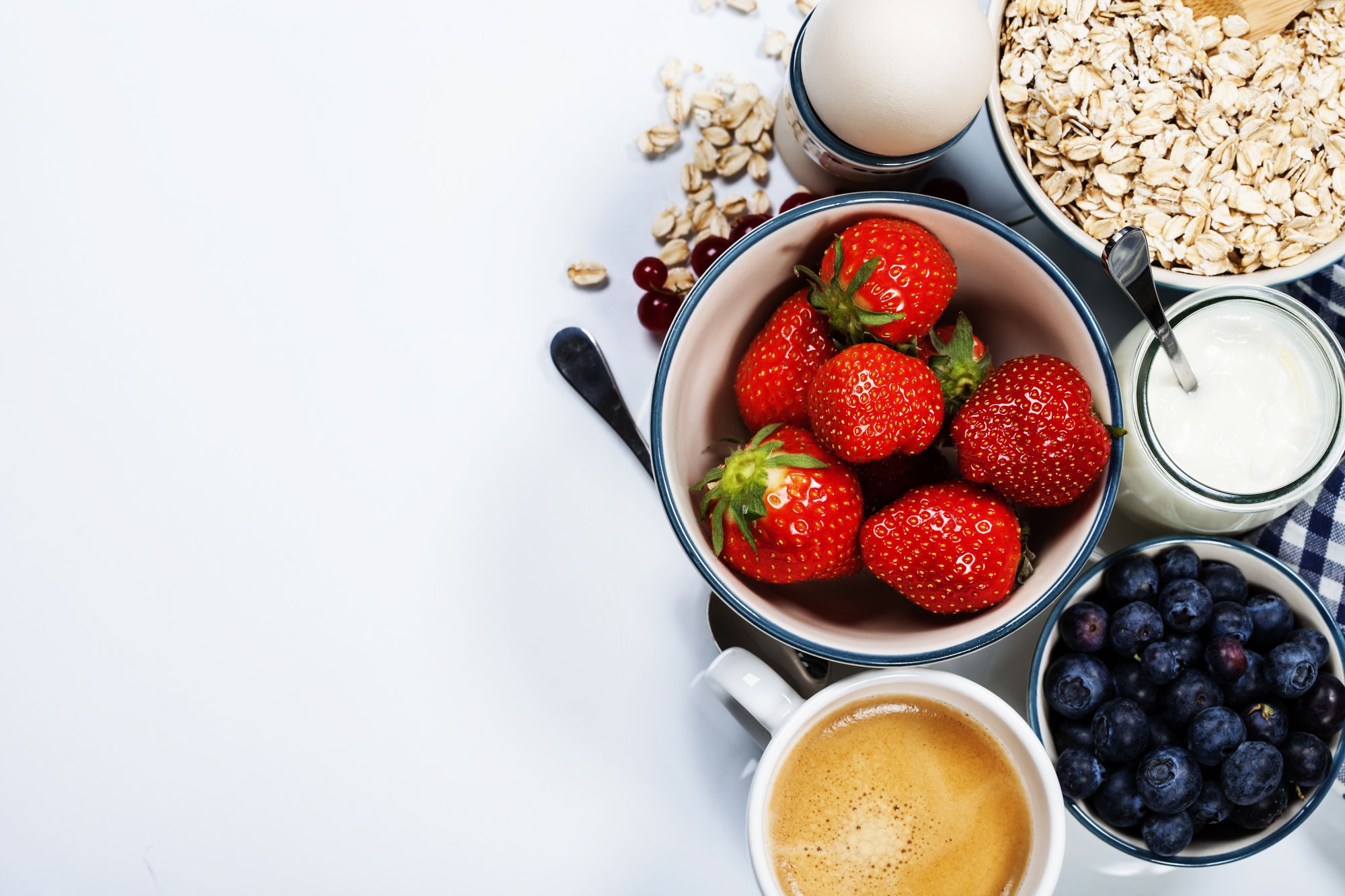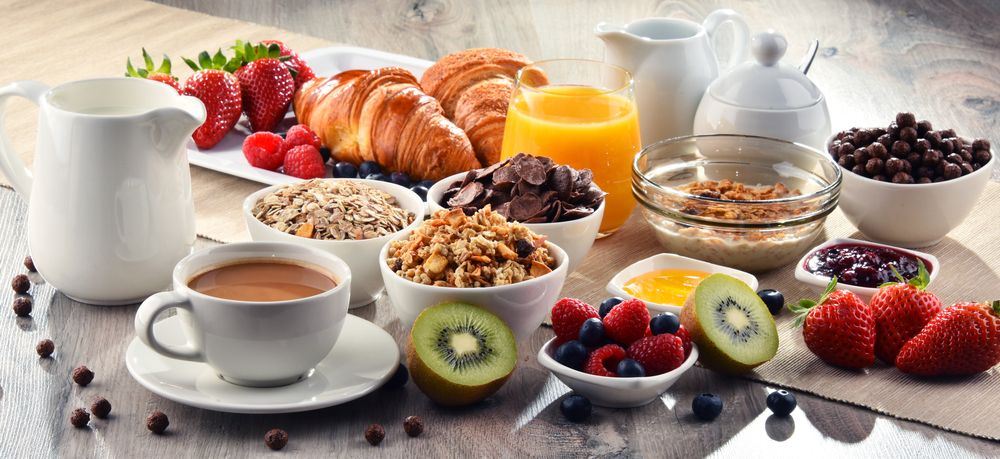Although the saying "breakfast is the most important meal of the day" was initially a marketing ploy, the significance of breakfast in achieving health goals, particularly weight loss, remains valid. Research and experts have substantiated that consuming breakfast can be a key factor in long-term weight loss, giving credence to the once-dismissed slogan.
Breakfast plays a crucial role in providing essential nutrients like protein, fiber, and healthy fats, as well as keeping you energized throughout the day. However, the quality of your breakfast is vital. A balanced and nutrient-rich breakfast will be far more beneficial than one loaded with added sugars and devoid of nutrients.
What if you Don't Feel Like Eating Breakfast?
Lisa Young, PhD, RDN, and author of 'Finally Full, Finally Slim,' advises not to worry if you're not inclined towards eating breakfast. She emphasizes the importance of breakfast for children, especially before school (including virtual ones). But for adults, there's no need to force breakfast early in the morning if they're not hungry. Waiting until they feel hungry is better than eating just for the sake of it.
However, having breakfast can contribute to weight loss. Young suggests that even if a full breakfast isn't appealing, having a small snack or a mini breakfast a few hours after waking helps maintain stable blood sugar levels. She recommends options like yogurt with berries or an apple with a couple of teaspoons of peanut butter, highlighting the importance of including protein in the morning for its satiating effect.
For those who can prepare a healthy breakfast, the meal offers significant benefits for weight loss. Young encourages exploring these advantages and provides 20 Healthy Weight Loss Breakfast Recipes for inspiration.
6 Weight Loss Benefits of Eating Breakfast
Beginning your day with a nutritious, well-balanced breakfast can support your weight loss objectives in several ways.
1) Eating Breakfast Can Give You Energy

Eating breakfast offers the delightful benefit of enjoying your favorite foods while also providing sustained energy levels throughout the day. The Cleveland Clinic notes that breakfast fuels your body to function optimally.
Young highlights that a morning meal helps maintain focus and alertness, enhancing both physical and mental performance, which in turn boosts productivity. While this isn't a direct factor in weight loss, increased energy can positively influence your motivation for exercise and preparing healthy meals. When we're tired or lethargic, we're more likely to skip workouts or opt for unhealthy food choices.
It's crucial, Young advises, to start your day with a nutritious breakfast that includes a mix of carbohydrates, proteins, and healthy fats. This balanced nutrient intake is key, as breakfasts high in refined sugars, like donuts and muffins, won't provide lasting energy. In fact, a study in the journal 'Obesity' indicates that a diet high in refined sugars can lead to increased fatigue and sluggishness.
2) Breakfast Can Help You Avoid Cravings at Night

Amy Goodson, MS, RD, CSSD, LD, and author of 'The Sports Nutrition Playbook,' shares her experience as a registered dietitian, noting that people who skip breakfast often crave carbohydrates at night. She explains that a breakfast rich in high-fiber carbohydrates and protein helps maintain steady blood sugar levels throughout the day, which can reduce later cravings.
Goodson points out a common misconception: while many believe skipping breakfast saves calories, they often end up consuming the same or more calories in less healthy options later in the day.
3) You Can Increase Your Fiber Intake

Having breakfast presents an opportunity to increase your daily intake of fiber, an essential nutrient for weight loss. Research in The Journal of Nutrition has linked fiber to more effective weight loss and diet adherence. The Mayo Clinic also notes that high-fiber foods are filling, allowing you to feel satisfied with fewer calories.
The American Heart Association recommends an intake of 25 to 30 grams of fiber daily, yet the average American consumes only about 10 to 15 grams. Many common breakfast foods are high in fiber, including oatmeal, whole-grain bread, fruits, and certain cereals. Adding breakfast to your routine increases your chances of meeting your fiber requirements.
Jinan Banna, PhD, RD, emphasizes the importance of fiber in weight management. She notes that many Americans fall short in consuming enough fruits and vegetables, which are excellent fiber sources. Fiber helps in feeling full, thus preventing overeating and adding minimal calories to your diet. Banna suggests incorporating fresh fruit into your cereal at breakfast to boost fiber intake.
4) It Can Help Maintain a Sense of Fullness

It might seem straightforward, but eating calories early in the day can fill you up, control your appetite during the morning, and set a positive tone for the rest of your day.
"Eating breakfast helps avoid extreme hunger later, which often leads to poor food choices," explains Young. "It keeps you satisfied for longer and aids in controlling portions for subsequent meals." This directly supports weight loss goals by reducing the intake of empty calories.
Young further notes, "Having breakfast establishes a routine and prevents waiting until extreme hunger sets in, which usually results in overeating." A study in Current Developments in Nutrition found that participants who ate breakfast experienced greater satiety and better appetite regulation compared to those who skipped it.
The key to a fulfilling breakfast is including all essential components of a healthy meal: protein, healthy fats, and fiber-rich carbohydrates. By integrating these groups into your meals, you'll feel satiated for an extended period.
5) You Also Gain an Increase in Healthy Fats

Breakfast options such as avocados, nuts, eggs, and smoked salmon are rich in healthy monounsaturated or polyunsaturated fats. These fats are associated with better appetite control and increased satiety, aiding directly in weight loss efforts.
A study in the journal 'Foods' highlights that both monounsaturated and polyunsaturated fats can regulate key hunger hormones, leading to enhanced control over appetite.
This article, initially published on May 18, 2021, has been updated with additional content, proofreading revisions, more research, and updated contextual links.
6) You'll Get Even More Protein

Your breakfast is not only a chance to increase your fiber intake but also an opportunity to consume a good portion of your daily protein requirement. Research in the Journal of the Academy of Nutrition and Dietetics shows that diets higher in protein significantly enhance feelings of fullness compared to lower protein diets. Furthermore, a high-protein diet is linked to increased weight loss, attributed to its positive effects on metabolism and satiety, reduction in hunger hormones, and decrease in overall food consumption.
Goodson suggests aiming for at least 20 to 30 grams of protein in your breakfast, complemented by a fiber-rich carbohydrate and a healthy fat source.
For a nourishing high-protein breakfast, Shannon Henry, RD at EZCare Clinic, recommends eggs or yogurt. These foods not only boost fullness but also help in reducing food intake later in the day, thus contributing to overall weight loss.

